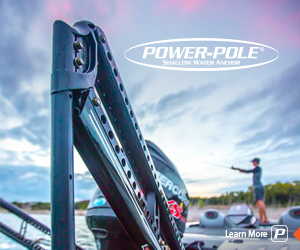Why Anglers Pay Attention To TempsPosted: July 10th, 2013 by Bill Dance Temperature is a big deal to fish. Why? Because they are cold blooded or ectothermic, as the scientists say. Yes, fish are cold-blooded creatures. Whereas we are warm-blooded and can “thermoregulate” and keep our bodies for the most part, within certain boundaries, fish can’t. Fish are thermoconformers. So they, like other cold-blooded critters, have their temperatures governed by surrounding elements. In the case of the fish, the surrounding water they inhabit regulates body temperature. Sometimes we humans think we are at the mercy of the weather, well, considering their cold-blooded makeup, now consider the environmental influences on fish. As I said from the start, it’s a big deal. And each fish species exhibits specific temperature preferences, but also have temperature tolerances that cover a much wider range. The largemouth, for example, seems most comfortable when the water is between 65 degrees and 75 degrees F, while the smallmouth likes slightly cooler water (60-70 degrees F). On the other hand, northern anglers often catch largemouths through the ice, which means that the water temperature is between 32 degrees and 39.2 degrees F. Temperature affects both the occurrence and the well being of fish, and bass are no exception. As the water chills, their metabolism starts to slow down, and in cold water, bass are very sluggish. They require much less oxygen and food, their digestive rate is very slow and they don’t exert much energy in chasing a lure. If you can find a spot where the water is slightly warmer than the surrounding area (such as the presence of a spring), you can bet there will be a concentration of fish right there. At the other extreme, bass become uncomfortable when water temperatures rise above 80 degrees F. With higher temperatures, fish require much more oxygen and will usually seek this oxygen above all other considerations. That’s when you’ll find them along windy shorelines, where a spring enters a lake, or among aquatic plants that produce oxygen. From an angling standpoint, you must be alert to temperature changes and the response you can expect from bass. Remembering that bass are cold-blooded and take on the temperature of the surrounding water, you can gain some instant intelligence the moment you land a bass. If you have a temperature gauge with you, slip the thermistor into the fish’s mouth and down into its stomach. Take a reading. Then lower the thermistor over the side until you find water of the same temperature. That’s the depth at which the fish was before you hooked it. All this is said, so you have the take home of this: if temps are a big factor with fish, this should also be the case for your considerations. Depending upon the day, a relatively slight change in water temperature (literally maybe only a few degrees) can dictate where fish are most likely to be found in a farm pond or a big reservoir. Don’t neglect to consider this on any of your fishing trips. As always, catch one for me!
|
Upload your trophy bass photo (or any other fish) to BillDanceOutdoors.com! Or, post comments about other photos submitted by Bill Dance fans.
Bill Dance is one of the most recognizable names and brands in fishing and outdoor gear. Please browse through our selection of superior products that proudly carry the Bill Dance name.
|





